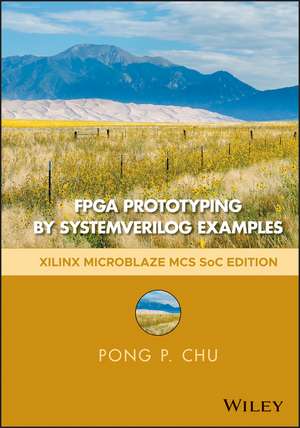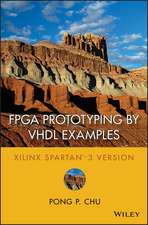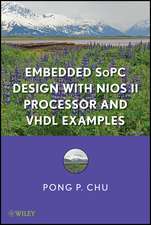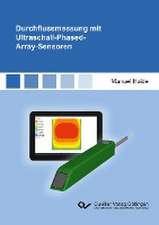FPGA Prototyping by SystemVerilog Examples – Xilinx MicroBlaze MCS SoC Edition
Autor PP Chuen Limba Engleză Hardback – 28 iun 2018
Preț: 716.67 lei
Preț vechi: 930.73 lei
-23% Nou
Puncte Express: 1075
Preț estimativ în valută:
137.15€ • 142.66$ • 113.23£
137.15€ • 142.66$ • 113.23£
Carte tipărită la comandă
Livrare economică 15-29 aprilie
Preluare comenzi: 021 569.72.76
Specificații
ISBN-13: 9781119282662
ISBN-10: 1119282667
Pagini: 656
Dimensiuni: 178 x 254 x 36 mm
Greutate: 1.47 kg
Editura: Wiley
Locul publicării:Hoboken, United States
ISBN-10: 1119282667
Pagini: 656
Dimensiuni: 178 x 254 x 36 mm
Greutate: 1.47 kg
Editura: Wiley
Locul publicării:Hoboken, United States
Public țintă
The intended audience is upper–level undergraduate students in an advanced digital design, embedded systems, and hardware–software co–design course as well as practicing engineers who wish to learn FPGA and HDL–based development. Readers need to have a basic knowledge of digital systems, a required course in electrical engineering and computer engineering curricula, and a working knowledge of the C/C++ language.Cuprins
Notă biografică
PONG P. CHU, PhD is an Associate Professor in the Department of Electrical Engineering and Computer Science at Cleveland State University, Cleveland, Ohio. He has taught undergraduate and graduate digital systems and computer architecture courses for more than two decades, and has received multiple instructional grants from the National Science Foundation.
















